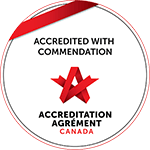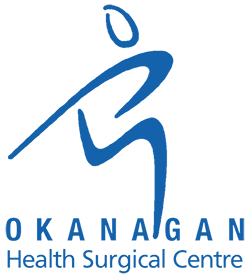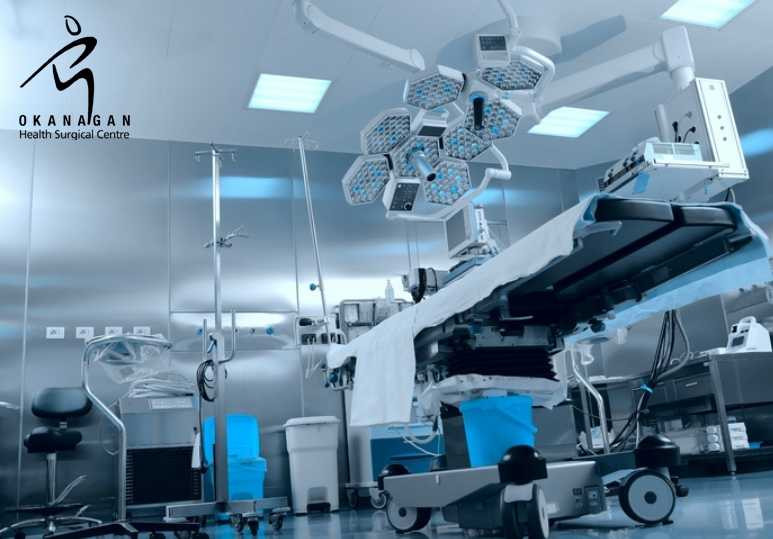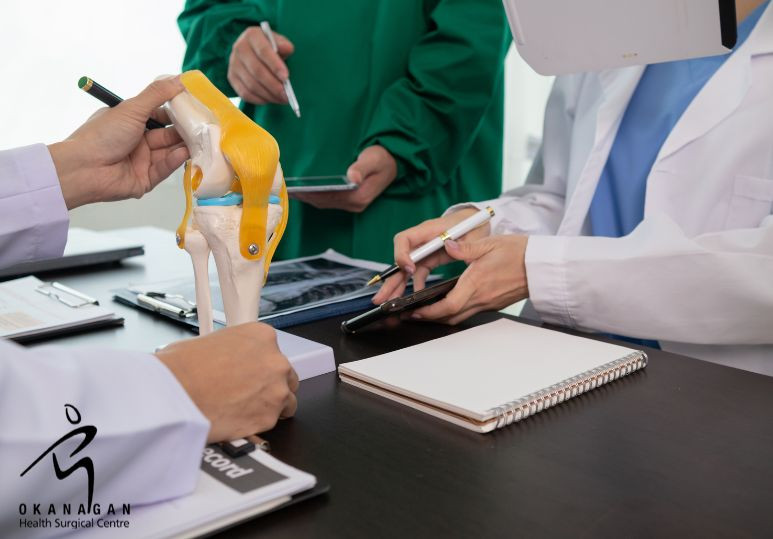Knee surgery can be a transformative experience for individuals facing chronic pain or mobility issues. Whether you’re preparing for a knee replacement or have recently undergone surgery, understanding the recovery and rehabilitation process is crucial to a successful outcome. Okanagan Health Surgical Centre in Kelowna is committed to guiding patients through this journey with compassion and expertise. This guide offers essential information to help you understand what to expect after knee surgery, empowering you to take an active role in your recovery.
The First Days After Knee Surgery: Immediate Post-Operative Care
The initial days following knee surgery are often challenging as your body begins the healing process. Patients should expect to spend a short time in the hospital or outpatient setting at Okanagan Health Surgical Centre, where medical staff will monitor their vital signs, pain levels, and initial mobility. Pain management will be a key focus during these early days, often managed with medications to make you more comfortable.
Post-operative pain and swelling are common, and while they can feel discouraging, they are part of the body’s natural healing response. According to the American Academy of Orthopedic Surgeons, most patients experience notable pain relief within a few weeks, though some discomfort may persist for several months as they continue to recover.
Starting Rehabilitation: The Importance of Physical Therapy
Physical therapy plays a critical role in knee surgery recovery. Your journey with physiotherapy often begins within the first few days post-surgery and is guided by a professional team at Okanagan Health Surgical Centre. Exercises are designed to gradually restore strength, flexibility, and range of motion in your knee.
In the initial stages, you’ll likely start with gentle movements, such as ankle pumps, knee bends, and assisted leg raises. These exercises prevent stiffness and help improve circulation to promote healing. Your physiotherapist will adapt your program as you progress, eventually incorporating more weight-bearing and functional exercises to help you regain full mobility.
Managing Pain and Swelling: Tips for Comfort
Swelling and pain are natural aspects of knee surgery recovery, but there are several strategies you can use to manage them effectively. The team at Okanagan Health Surgical Centre recommends following the R.I.C.E method: Rest, Ice, Compression, and Elevation. This technique can alleviate discomfort and reduce swelling, making your recovery process more manageable.
Practical Advice
Use ice packs on the affected area multiple times a day, keeping them on for 15-20 minutes at a time. Compression bandages may also help control swelling, and elevating your leg above heart level can ease blood flow and minimize fluid buildup. Additionally, pain management medications provided by your healthcare provider will help you stay comfortable during the early recovery stages.
Watching for Complications: Knowing When to Seek Help
While most knee surgery patients experience a smooth recovery, it’s essential to be aware of potential complications. Signs of infection, such as increased redness, warmth, or discharge around the surgical site, should not be ignored. At Okanagan Health Surgical Centre, our team encourages patients to stay in close contact with their healthcare provider if any concerns arise.
Key Signs to Monitor
Look for persistent pain that doesn’t respond to medications, excessive swelling, or difficulty moving the knee. Blood clots, though rare, can also occur and may present as pain or swelling in the calf. Early detection and treatment of complications can make a significant difference in your overall recovery experience.
Regaining Mobility: Moving Towards Independence
As you progress through the weeks following surgery, you’ll notice gradual improvements in mobility and strength. Most patients can expect to use a walker or crutches initially, moving on to a cane and eventually walking unaided as strength returns. Consistent physical therapy remains key, with a focus on exercises that rebuild the muscles around your knee to support better movement.
Studies indicate that patients who engage in regular physical therapy after knee surgery often see better long-term results, with greater strength and flexibility than those who don’t. At Okanagan Health Surgical Centre, our goal is to empower patients to return to their daily routines with confidence and independence.
Long-Term Rehabilitation: Setting Realistic Expectations
The recovery process after knee surgery doesn’t end after a few weeks; it often continues for several months. Many patients achieve full recovery within six months to a year, depending on individual factors such as age, overall health, and adherence to their rehabilitation program. Being patient with your body and setting realistic expectations will help maintain motivation throughout the healing process.
Practical Tips for Success
Stay consistent with your physical therapy appointments, engage in low-impact exercises, and avoid high-stress activities on your knee. By following the recommendations of your healthcare team at Okanagan Health Surgical Centre, you’re setting yourself up for a more successful recovery.
Embracing Your Recovery Journey
Recovering from knee surgery requires patience, dedication, and the support of a caring medical team. At Okanagan Health Surgical Centre, we understand the challenges our patients face and are committed to providing the personalized care and guidance they need for a successful recovery. By actively participating in your rehabilitation program and following the advice in this guide, you can look forward to improved mobility, reduced pain, and a return to the activities you enjoy.
Ready to Begin Your Recovery? Okanagan Health Surgical Centre is Here to Help
If you’re considering knee surgery or are in the early stages of recovery, Okanagan Health Surgical Centre in Kelowna is here to support you at every step. Our team of dedicated healthcare professionals provides comprehensive care, personalized rehabilitation programs, and compassionate support. Reach out to us today to learn more about our services and begin your journey to a healthier, pain-free future.
FAQ’s
Q: What are potential complications to watch for after knee surgery?
A: Watch for signs of infection (redness, warmth, discharge), excessive swelling, or blood clots. Contact your healthcare provider if these symptoms arise.
Q: When will I be able to return to normal activities?
A: Many people can resume basic daily activities within 6-12 weeks, though high-impact activities should be avoided until cleared by your doctor, often at 6-12 months.
Q: What support does Okanagan Health Surgical Centre provide post-surgery?
A: Okanagan Health Surgical Centre in Kelowna offers comprehensive post-surgery care, including personalized physiotherapy programs and ongoing support to help patients recover confidently. Contact us today to learn more about our knee surgery recovery options.







